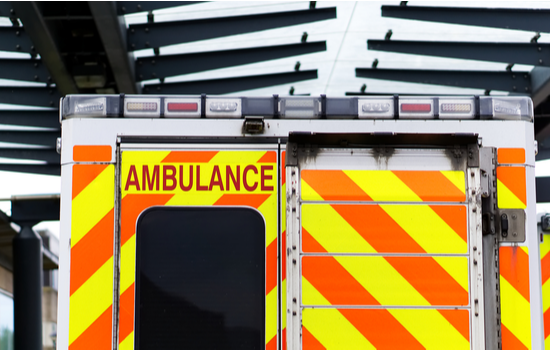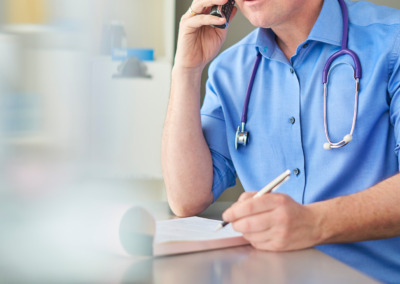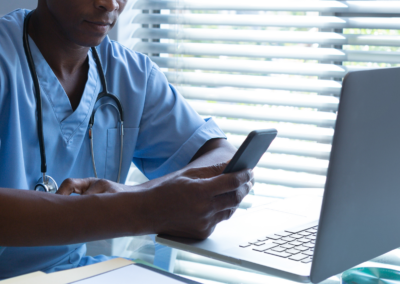‘I wanted to help the fight against COVID-19. I have a background in A&E as well as being a GP and passionately believe that supporting 999 will thus reduce the use of out-of-hours services, secondary care and A&E. This really helps the system cope and is usually better for the patient and the NHS as a whole.’ – Dr Simon Hodes.
Dr Simon Hodes is a GP in Hertfordshire and West Essex ICB. He is one of the clinicians who volunteers to answer Telephone Advice & Guidance calls from 999 ambulance crews and clinical support desk staff at South Central Ambulance Service NHS Foundation Trust (SCAS). Dr Hodes created ‘TeamGPvCovid’ – a team of volunteer GPs who responded in large numbers to a social media campaign and offered their time and skills for free to support the 111 service during the COVID-19 pandemic. He approached Consultant Connect in March 2020 to work in partnership as both organisations were working on similar projects.
We asked Dr Hodes why he wanted to answer Telephone Advice & Guidance calls:
‘I wanted to help the fight against COVID-19. I have a background in A&E as well as being a GP and passionately believe that supporting 999 will thus reduce the use of out-of-hours services (OOH), secondary care and A&E. This really helps the system cope and is usually better for the patient and the NHS as whole.’
Dr Hodes elaborates on this and describes the main benefits:
‘The patient and SCAS staff get quick access to and response from a GP. They receive expert support by phone very quickly – so there is no delay for 999 clinicians or patients. It also gives the 999 clinician confidence as they have discussed the case and shared the responsibility.’
Dr Hodes has provided the following example of when answering a Telephone Advice & Guidance call has helped a patient:
‘A lady with nausea had called 999 around 11pm. She had been fully assessed at home by the paramedic crew, who were unsure how to manage her care. Her vital signs were stable, her blood glucose normal, she had no abdominal pains or vomiting, her examination findings were reassuring, and she had been feeling nauseated for around 24 hours. On taking the details, she was on lithium for bipolar disorder. The call handler was going to refer the patient to call 111 for an urgent home review as was unsure what to do.’
How Telephone Advice & Guidance helped:
‘After checking all the details, and taking a further history, there were no red flag details, and I did not feel this needed an urgent out-of-hours assessment. Amongst other possibilities, it could have been side effects of her lithium medication – but I did not have the full notes or recent blood levels (and neither would OOH). As such, we all agreed that this was best for in-hours review by the patient’s own GP – who would likely know the patient well and would certainly have full medical notes and blood results.’
Dr Hodes feels that Telephone Advice & Guidance was very important in this case (and all the others he has answered) and writes that ‘the call handler was unsure and was going to pass the call to the OOH service. This was safely avoided, and will have saved further NHS time and resources being used.’
Click here to view and download PDF version of this case study.





